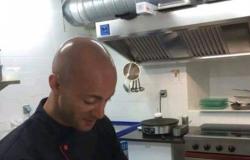
At the end of three days of trial, the jurors of the Pyrénées-Orientales Assize Court, this Wednesday, December 11, 2024, found Nicolas Roses guilty of having fatally stabbed Alexandre Lefevre on the night of December 30. May 31, 2022 in Trouillas. A crime of which the accused claims to have no memory, apart from a few “flashes”. The accused was sentenced to 16 years of criminal imprisonment.
At the end of three days of trial, the jurors of the Pyrénées-Orientales Assize Court, this Wednesday, December 11, 2024, found Nicolas Roses guilty of having fatally stabbed Alexandre Lefevre on the night of December 30. May 31, 2022 in Trouillas. A crime of which the accused claims to have no memory, apart from a few “flashes”. He was sentenced to 16 years of criminal imprisonment. Totally disarming. Nicolas Roses, 34, recognizes him without difficulty in the seating box. He stabbed the man he considered his “best friend” one night in May 2022 in Trouillas. However, he still doesn't know how, or really why.
Three years earlier, they had met by pure coincidence in a shelter in Dignes-les-Bains. Alexandre Lefevre is a dishwasher and seasonal chef. From the favelas in Brazil, he was adopted at the age of six by a loving family in Belgium. A boy “without fuss, kind, very serious in his work, both discreet and jovial, always helpful and very endearing“, say without exception all those who knew him. “The friend everyone dreams of having.” So, the two young men hit it off. At the end of his contract in April 2022, Alexandre even decides to visit Nicolas who lives with his mother in Trouillas. This May 30, he has been there for three weeks, without a hitch, and he even delayed his return to his family in Belgium by a few days. “On the evening of the tragedy, I will describe it as precisely as possible from what I remember”begins Nicolas Roses, a big guy, the dented cheekbones of a boxer, a thin mustache and an earring. Words slurred by years of drug and alcohol use. “When I returned from my driving lesson, Alexandre was on the terrace. He went to get a few beers, then we had some Ricard, some Muscat. Alexandre went back to get a few beers and surprised me by bringing back a box of wine for each of us. We continued to chat on the terrace with my mother. She went to bed. We decided to also take medication, we made a mixture. We were already in quite a state. And we continued to drink, drink and drink… We went on the terrace with the speaker. From there, it's a black hole, I don't remember much, not even talking to mom when she left for work.”
“When I saw his body, I said to myself: “But my God, what happened to get to this point? “
Nicolas Roses doesn't hide it either. “Alcohol makes me bad, especially wine, it’s like poison to me”. From there to knowing what is the “circuit breaker” element? He says that Alexandre, who had a 50 euro note left, would have had “want to take cocaine”. “I have a flash where I see Alexandre sitting on the little front step of the house, he wanted to call a drug dealer he had met in Perpignan. I remember telling him not to do it. Some time Afterwards, he went into the street, below the stadium, he went down to see someone in a car. From there we got into a fight, I don't remember what we said. I see myself in a small dark alley, on a slope, pick up the knife from the ground, shout at Alexandre and suddenly, the gendarmerie wakes you up.”
The body of his “friend” has just been discovered half-dressed in the street, his body with several stab wounds. “At first, I didn't understand, I was handcuffed. I saw the empty bed next to it. I said to myself: 'But where is Alexandre?' It was like a bad dream. When I left, I looked at his body for at least ten seconds and I said to myself: “But my God, what happened to get to this point? I sincerely loved him. He was a very good person and I have a lot of regrets. I've been trying to trace the thread for two years to understand what could have made me reach such a point, but I can't.” Never mind the amnesia. The jurors sentence Nicolas Roses, defended by Me Florent De Saint Julien, to 16 years of criminal imprisonment accompanied by socio-judicial monitoring for 10 years. Six years less than the requisitions of the general advocate who had requested 22 years of imprisonment.





